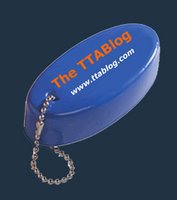"DREAM DECIDE DO" Fails to Function as a Trademark for Stationery and Printed Works, Says TTAB
The phrase DREAM DECIDE DO may sound like it came from a Taylor Swift song, but it wasn't a hit with the TTAB. The Board affirmed a refusal to register the proposed mark, finding that it fails to function as a source indicator for "Stationery; Blank notepads; Blank paper notebooks; Printed day planners; Printed desktop planners; Printed motivational cards; A series of printed books, printed articles, printed handouts and printed worksheets in the field of motivation and personal development." In re Financial Success Media, LLC, Serial No. 97087569 (May 10, 2024) [not precedential] (Opinion by Judge Cheryl S. Goodman).
The Board's assessment of whether the proposed mark functions as a trademark is based on whether the relevant public, i.e., purchasers or potential purchasers of the identified goods, would perceive DREAM DECIDE DO as a source identifier for those goods. "We look to the specimens and other evidence of record showing how the designation is actually used in the marketplace."
Examining Attorney Kim Teresa Moninghoff submitted marketplace evidence showing use of the phrase "Dream Decide Do” by third parties in connection with clothing, podcasts, career events, book teasers, and planners, and in blogposts and other social media. She argued that DREAM DECIDE DO is widely used by a variety of sources that merely conveys an ordinary, familiar, well-recognized concept or sentiment, and is “commonly used as a motivational or coaching tool to convey the steps to achieving one’s dreams.”
Applicant pointed to the lack of evidence of use of DREAM DECIDE DO for planners or its other 16 goods. The Board, however, observed that the evidence showed individuals and businesses using this slogan in a non-trademark manner. "In prior cases, we have found evidence of usage by various businesses, or on other products and services, not limited to any particular sector, or particular goods, to be probative of informational use."
Moreover, "ornamental use of phrases on planners by third-parties, or variants of the designation, while not determinative, is relevant to the determination of whether DREAM DECIDE DO functions as a mark."
Applicant also criticized the amount of evidence as insufficient to establish widespread use. The Board was unmoved. "Although the volume of evidence in this case is not as large as in other Board cases, there is no specific rule as to the exact amount or type of evidence necessary to prove informational use."
Concluding that "[t]his common use by third parties of DREAM DECIDE DO and its variants, renders it less likely that the public would perceive the phrase as identifying a single commercial source," the Board affirmed the refusal to register."Read comments and post your comment here.
TTABlogger comment: Do you think DREAM DECIDE DO could serve as a source indicator for an ice cream parlor? An ice cream flavor? The BLACK CARD case suggests that whether a mark fails to funciton depends on the goods/services involved.
Text Copyright John L. Welch 2024.


















